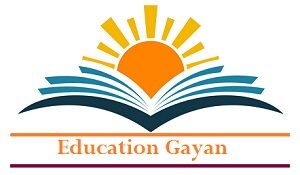1,589 Views
Introduction to TEFL
Teaching English as a Foreign Language (TEFL) is a discipline aimed at instructing non-native English speakers in the English language. It encompasses various methodologies, approaches, and techniques tailored to meet the diverse needs of learners across different cultural and linguistic backgrounds.
Importance of TEFL
- Global Communication: In an increasingly interconnected world, English serves as a lingua franca, facilitating communication across borders in various domains such as business, academia, and tourism.
- Enhanced Opportunities: Proficiency in English opens doors to better job opportunities, higher education prospects, and cultural exchange programs, making TEFL vital for individuals seeking to broaden their horizons.
- Cultural Exchange: TEFL fosters cross-cultural understanding by exposing learners to different linguistic and cultural perspectives, thereby promoting tolerance and empathy.
History of TEFL
- Early Developments: TEFL has its roots in the early 20th century when the British Council initiated English language teaching programs to meet the demands of British imperialism and global trade.
- Post-War Expansion: The aftermath of World War II saw a surge in the demand for English language instruction, leading to the establishment of numerous TEFL institutions and methodologies, including the Audio-Lingual Method and the Direct Method.
- Communicative Approach: The late 20th century witnessed a paradigm shift towards communicative language teaching, emphasizing real-life communication and interaction over rote memorization and grammar drills.
Methodologies in TEFL
- Grammar-Translation Method: This traditional approach focuses on explicit instruction of grammar rules and translation of texts, often neglecting speaking and listening skills.
- Audio-Lingual Method: Based on behaviorist principles, this method emphasizes repetition, mimicry, and habit formation through drills and dialogues.
- Communicative Language Teaching (CLT): CLT prioritizes meaningful communication by engaging learners in authentic tasks, role-plays, and discussions, promoting fluency and accuracy simultaneously.
TEFL Certification Programs
- TESOL (Teaching English to Speakers of Other Languages): TESOL certification equips educators with the necessary skills and knowledge to teach English to non-native speakers, covering areas such as lesson planning, classroom management, and language assessment.
- CELTA (Certificate in Teaching English to Speakers of Other Languages): Offered by Cambridge Assessment English, CELTA is a widely recognized qualification for individuals pursuing a career in TEFL, combining theoretical insights with practical teaching experience.
- TEFL Online Courses: With the advent of online learning platforms, aspiring TEFL teachers can now enroll in accredited online courses that offer flexibility and accessibility without compromising on quality.
Challenges in TEFL
- Linguistic Diversity: TEFL classrooms often comprise learners with diverse linguistic backgrounds, posing challenges related to language proficiency levels, cultural norms, and learning styles.
- Resource Constraints: Limited access to instructional materials, technology, and professional development opportunities can hinder effective TEFL instruction, especially in low-resource settings.
- Teacher Training and Support: Inadequate training and support for TEFL educators may result in ineffective teaching practices, lack of motivation, and burnout, highlighting the need for ongoing professional development initiatives.
Technology in TEFL
- Computer-Assisted Language Learning (CALL): CALL tools such as interactive software, online exercises, and virtual classrooms enhance the effectiveness and efficiency of TEFL instruction by providing personalized learning experiences and instant feedback.
- Mobile Learning Apps: Mobile applications like Duolingo, Rosetta Stone, and Quizlet offer convenient and engaging platforms for language practice and skill development, catering to the needs of digital-native learners.
- Virtual Reality (VR) and Augmented Reality (AR): Immersive technologies enable TEFL educators to create simulated environments where learners can practice English in realistic scenarios, such as ordering food in a restaurant or navigating a virtual city.
Future Trends in TEFL
- Adaptive Learning: Advances in artificial intelligence and adaptive learning algorithms will enable personalized, data-driven approaches to TEFL instruction, catering to individual learner needs and preferences.
- Online and Hybrid Learning Models: The growing popularity of online and hybrid learning models will continue to reshape the landscape of TEFL education, offering greater flexibility and accessibility to learners worldwide.
- Intercultural Competence: TEFL curricula will increasingly emphasize the development of intercultural competence, equipping learners with the skills and knowledge to navigate diverse cultural contexts and communicate effectively in multicultural settings.
Conclusion
TEFL plays a crucial role in promoting global communication, cultural exchange, and educational opportunities for non-native English speakers. By embracing innovative methodologies, leveraging technology, and addressing emerging challenges, TEFL educators can empower learners to achieve proficiency and fluency in the English language, thereby opening doors to a world of possibilities.


